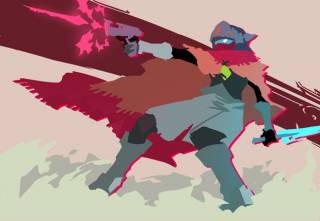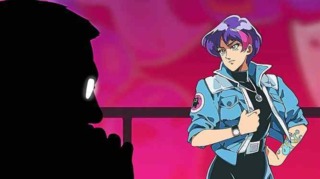
Bruno Dias is a São Paulo-based video game developer and writer. He’s also one of your Giant Bomb guest contributors. Otherwise he writes interactive fiction about superheroes, wizards, and goat-deities and works on a space-travelling game set in a recombinant galaxy. He is perhaps best known as the last mediocre white man who doesn’t have a podcast. Anyway, he’s on Twitter.
These two things I believe in my heart to be true: 2016 was in most ways that count an awful year, and stack ranking things is a bad idea. So this list is unordered; think of it as ten holiday gifts. Some come in large boxes, some come in tiny ones; they don’t have an intrinsic order. All are valuable.
Stardew Valley
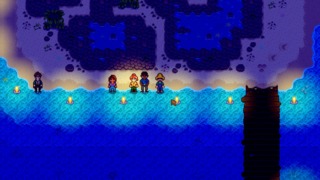
What can I say about Stardew Valley? First, it takes the farming RPG template of Harvest Moon and gives it a world with more depth and more emotional resonance; it’s the Dark Souls of Harvest Moon. Second, I have played entirely too much of it, and yet it doesn’t feel like an endless “whittling” game like Minecraft. It has an arc, which I enormously appreciate. I felt like I was done with it, eventually, not because it tired me out but because I reached some kind of completion with it.
Firewatch
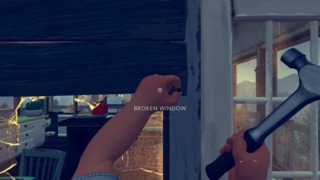
Firewatch is a game for grown-ups. It’s a game about adult concerns, relationships, and anxieties. This is novel in video games, but it’s also increasingly scarce in the culture at large. In a lot of ways, the Dark Souls of writing right now is figuring out how to represent those adult issues in a society where the traditional markers of adulthood have seemingly dissolved away for a lot of people.
It’s also an amazing achievement in interactive writing, with a carefully structured plot that responds very organically to player input. I wrote much more about Firewatch in my first guest column for Giant Bomb.
No Man’s Sky
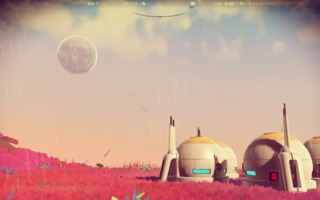
Seemingly torpedoed by the Dark Souls of bad game marketing campaigns, No Man’s Sky now might be set to go down in the medium’s collective memory as a disappointment. And that’s a shame! It is such a curious pile-up of decisions, and so seemingly a deep rebuke of completionism and goal-oriented thinking.
“What modern movies lack, is the wind in the trees.” That would be father of modern narrative film and noted racist D.W. Griffith, and though he was wrong about a lot of stuff (like the Klan being heroes, or that Intolerance was commercially viable), he wasn’t wrong about the inherent beauty of serendipitous, purposeless, non-narrative motion; about the wind in the trees. No Man’s Sky is a game about what modern games lack, it’s a game about walking through the rustling grass.
Sid Meier's Civilization VI
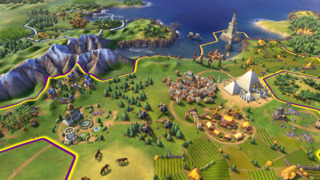
This is the big box, the impressive one, the one that barely fits under the nondenominational holiday ornament holder; the Dark Souls of gift boxes. Some of the boxes, you think they have books, or socks, or maybe a lesser kitchen device. This one, though? This one is the real deal. This is the Philips Airfryer (US MSRP: $399.99) you claimed you asked for as a joke but was hoping someone would actually get for you. Civilization VI astonishes with its sheer breadth; it’s by far the biggest Civilization game on release, and yet it feels remarkably cohesive. All of its systems play beautifully well together, forming an intricate web of relationships that I wrote 8000 words of strategy guide content last month partly to help myself see them. Yes, like any undertaking this massive it’s not without its flaws; and yes, the AI is still not the truly good 4X game AI we all long for. But it’s still an incredible design, and probably the best realization of Civilization’s credo of the game as a series of interesting decisions.
Quadrilateral Cowboy
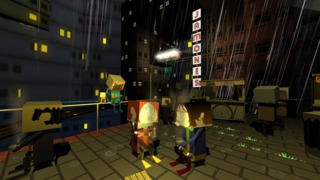
This is a game about so many things: friendship, intimacy, love, home, space, time (the Dark Souls of themes), transgression, crime, loyalty, bodies, computers, the future, the past, identity, perception, optimism, survival. But in those things it’s neither coy nor vulgar; they all unfold naturally out of the narrative, the spaces, and the mechanics. I still distinctly remember the single moment in that game where you turn around from your console and see your partners in crime sitting on the floor right behind you, tip-tapping away at their keyboards. Quadrilateral Cowboy is the rare puzzle game that left me wanting more not because I thought there was more design space to explore in its mechanics (though, perhaps, there was) but because I wanted to spend more time in that world. It is, above all else, warm and humane in a way that games desperately need more of right now.
Oxenfree
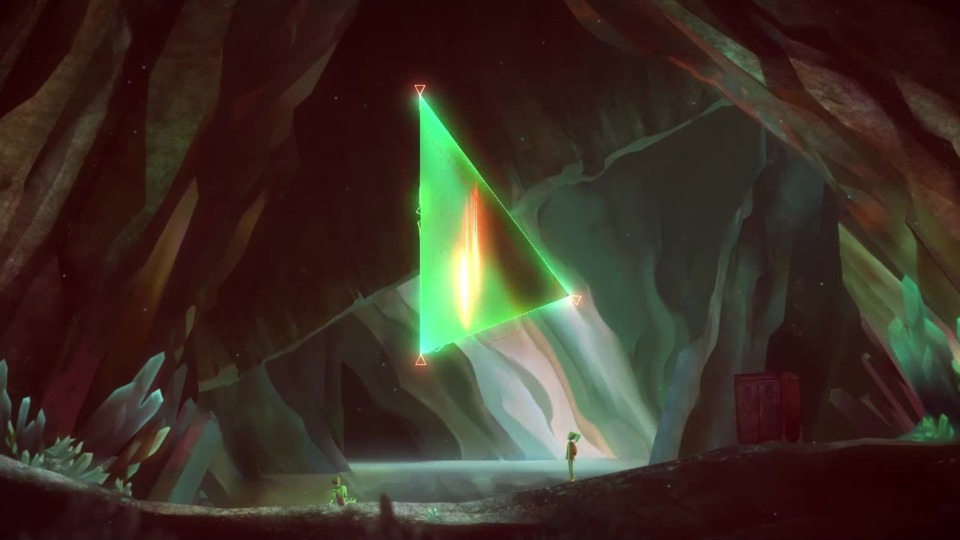
Dialogue is really challenging to model; good dialogue is the Dark Souls of interactive narrative. Oxenfree is perhaps the greatest technical achievement in dialogue modeling, ever, with multiple characters talking to, and over, each other in an ongoing coherent narrative that the player can always choose to enter into--or not--at any moment. It makes the dialogue trees in traditional RPGs look antiquated. Add to this the second-best YA ghost story in games this year, wonderful visual design, and a satisfyingly twisty plot. This is a game that definitely deserved more attention than it got, and if you haven’t played it, you should rectify that immediately.
Known Unknowns
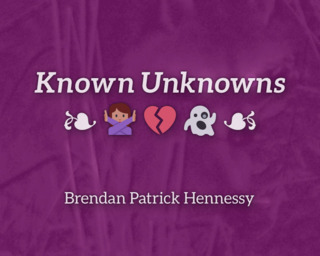
Full disclosure: The author, Brendan Hennessy, is a friend (a soul buddy, the Dark Souls of buddies) of mine. Please don’t let this dissuade you from trying this still ongoing episodic Twine adventure about ghosts, teenagers, and taking the YA genre apart bit by bit only to rebuild it better, stronger, faster, more bisexual. It’s free; it’s a nondenominational ceremonial gift-holding garment stuffer that we all got this holiday season, and I’m very much looking forward to seeing more of it.
Cactus Blue Motel

That moment at the edge of adolescence, between high school and college--or, for most people, looking for a job--is maybe the Dark Souls of growing up. Cactus Blue Motel has the basic quality of great coming-of-age stories, which is a mix of specificity, universality, and wonder. It captures that moment, and the accompanying desire/fear of halting there and never moving forward again. It’s the standout story in an IFComp full of standouts. (Full disclosure again: I also personally know Astrid Dalmady).
Anatomy
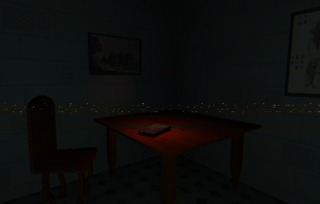
Anatomy is terrifying not in the way a horror movie is terrifying but in the way a nightmare is terrifying. Horror (the Dark Souls of genres) seemed to go directly from novelty to triteness after Amnesia and the ensuing explosion of crawling-through-dark-corridors-getting-jump-scared games. But I’m not sure Anatomy is a horror game. It’s a transferrable nightmare. It does so much with so little. There are no empty jump scares, there’s no monster constantly chasing you at slow walking pace, there are no pointless puzzles or locked doors. There’s no stupid flickering flashlight: instead, the player is surrounded by a feeble point light with a sharp, and near, falloff. It’s a perfect rendering of what it’s like to feel around in near-total darkness, wandering around a space that is at once utterly familiar and somehow wrong, waking again and again from the same nightmare.
Dark Souls III
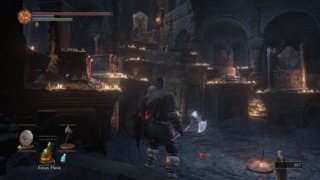
The Dark Souls of Souls games, and the Dark Souls of sequels. Dark Souls III is everything the closing chapter of a trilogy should be, which is to say it is exactly what these games are almost invariably not: An ending. I wrote extensively about that for Zam earlier this year. It’s by far the most accessible Souls game, too, which I count as a positive. Though I sometimes despair at the difficulty fetishism unleashed by the series, I know that the real value of Dark Souls lies in its careful worldbuilding and its disciplined level design. Dark Souls III achieves the seemingly impossible task of making the end of the series satisfying, so much so that I now actively don’t want another Souls game.

